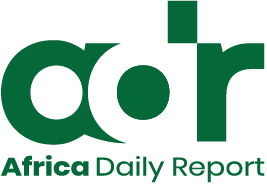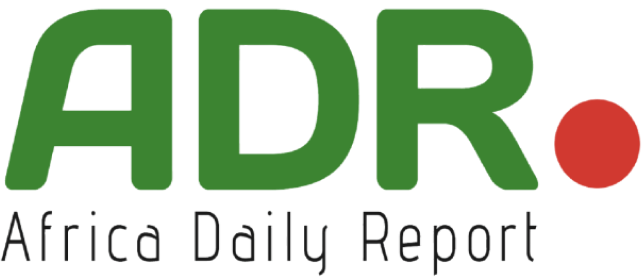
Central Questions: As the Democratic Republic of Congo (DRC) debates a possible constitutional reform, crucial questions emerge. Is the country ready for such a shift? Could President Félix Tshisekedi’s initiative be an authentic push to adapt the Constitution to national realities, or does it signify a covert attempt to extend his hold on power? The issue divides Congolese society, raising legal, political, and social implications that merit careful analysis.
A Controversial Initiative: Political Challenges to Constitutional Revision
President Félix Tshisekedi, despite holding a solid parliamentary majority since the December 2023 elections, faces opposition in his campaign to amend the 2006 Constitution. He argues that the current Constitution, ratified in 2005 with over 84% popular support, was “written by foreigners abroad” and is “unsuited to the realities of the DRC.” On October 23, Tshisekedi chose Kisangani—a symbolic location where portions of the 2006 Constitution were initially discussed—to announce his intentions, calling for a review by a committee of experts. According to his supporters, the revision is essential to address “weaknesses” and streamline political processes. Critics, however, suspect a hidden agenda aimed at securing a third term, casting doubts on Tshisekedi’s true intentions.
Constitutional Limitations and the Significance of Article 220
The Congolese Constitution imposes strict limitations on reforms, especially regarding presidential term limits and judiciary independence, outlined in Article 220. This article, seen as untouchable, enshrines the republican form of government, universal suffrage, representative government, and judicial autonomy—none of which can be revised. The article also bars any extension of the president’s two-term limit. By maintaining this clause, the Constitution was crafted as a safeguard against any form of autocratic rule. Tshisekedi’s calls for reform trigger fears that he may breach these safeguards to remain in power, a move condemned by opposition leaders such as Devos Kitoko from the ECIDé party and activist Jean-Claude Katende of the African Association for the Defense of Human Rights (Asadho). These critics caution against what they consider a potentially destabilizing political maneuver.
A Historical Context Shaped by Conflict and Compromise
Promulgated in 2006 after years of civil conflict, the DRC’s Constitution marked the dawn of the Third Republic and was intended as a foundational document to secure peace and foster democratic governance. The constitution’s 2011 revision introduced a one-round presidential election, a change that some argued undermined electoral competitiveness. Augustin Kabuya, the Secretary General of Tshisekedi’s Union for Democracy and Social Progress (UDPS), now argues that the Constitution has since proven inadequate and should be re-evaluated to address inefficiencies. During a September rally, Kabuya criticized the five-year presidential term, contending that practical limitations mean presidents only have “three effective years in office.” He added that “the UDPS opposed this Constitution in 2006,” promising the Congolese people that once in power, they would review it. Today, that promise has resurfaced, further fueled by Kabuya’s assertion that the Constitution was “crafted under duress by former combatants.”
Political Dynamics and Legal Obstacles: The State of Siege Issue
Another legal barrier complicating Tshisekedi’s reform efforts is the ongoing “state of siege” declared in North Kivu and Ituri in 2021. The Constitution prohibits any amendments under a state of war, emergency, or siege, and Tshisekedi would need to lift this provision to pursue his proposed reforms. This challenge is compounded by skepticism within his own coalition, the Sacred Union. While UDPS members actively advocate for the constitutional revision, other coalition figures have been more reserved, questioning the necessity and timing of such changes.
Public Criticism and Internal Division Within the UDPS
Within the ruling party, the UDPS, Tshisekedi’s plans are causing division. Party leader Augustin Kabuya has come under scrutiny for what some consider a “personalized and authoritarian” management style, and recent months have seen an escalation of conflict within the UDPS. A faction within the party, led by figures like Eteni Longondo, has pushed for an extraordinary party congress, citing the need for reorganization. Kabuya’s opponents accuse him of straying from the party’s core principles, while others fear the reform may sideline internal dissent.
Regional and International Context: A Reflection of Broader African Trends
The debate over constitutional limits in the DRC is part of a broader trend across Africa, where leaders in countries such as Burkina Faso and Senegal have faced intense opposition in their attempts to extend terms. Yvon Muya, author of The Congolese Revolution: Kabila, the Streets, and the Shift of Power, notes that while Tshisekedi enjoys a more stable political climate than his predecessor Joseph Kabila, the potential for unrest remains significant. DRC’s regional and historical context, including its past support for term limits, reflects the high stakes involved in any attempt to alter the political framework.
Conclusion: A Moment of Decision for Congo’s Democracy
As Tshisekedi cautiously navigates this sensitive issue, the question remains: is this reform an overdue step to modernize a Constitution that is increasingly seen as outdated, or is it an attempt to consolidate power? The societal response to this question, combined with the potential for internal and regional resistance, will likely determine the success or failure of Tshisekedi’s initiative. The world watches as Congo approaches a pivotal decision—will Tshisekedi dare to cross the constitutional Rubicon, or will the limits of Article 220 hold firm?
© Odon Bulamba / Africa Daily Report




